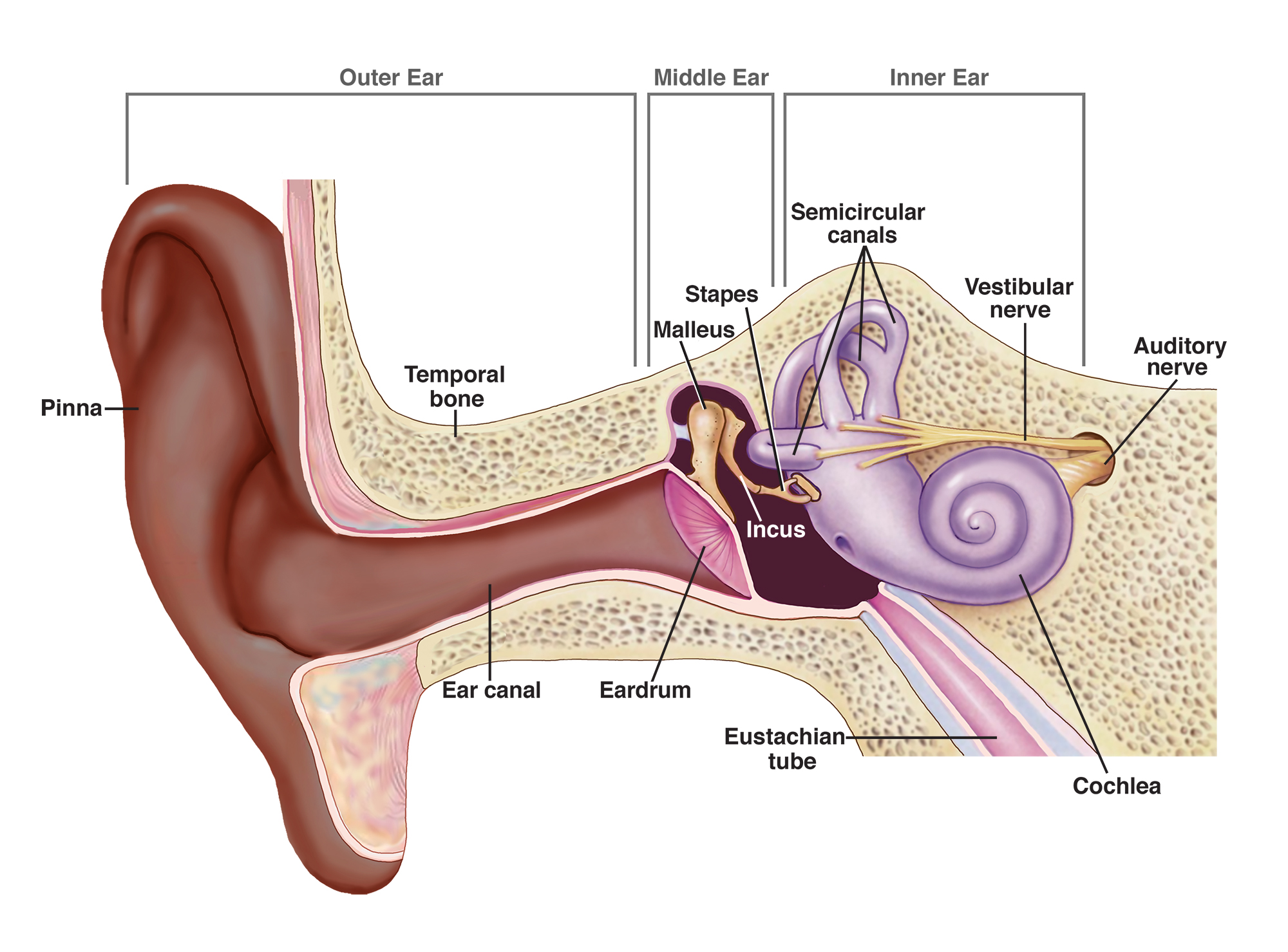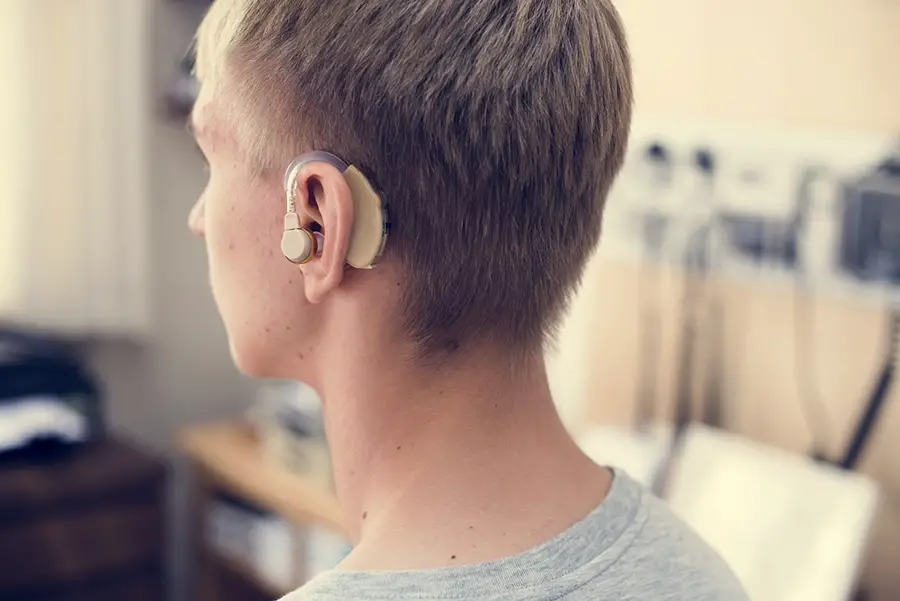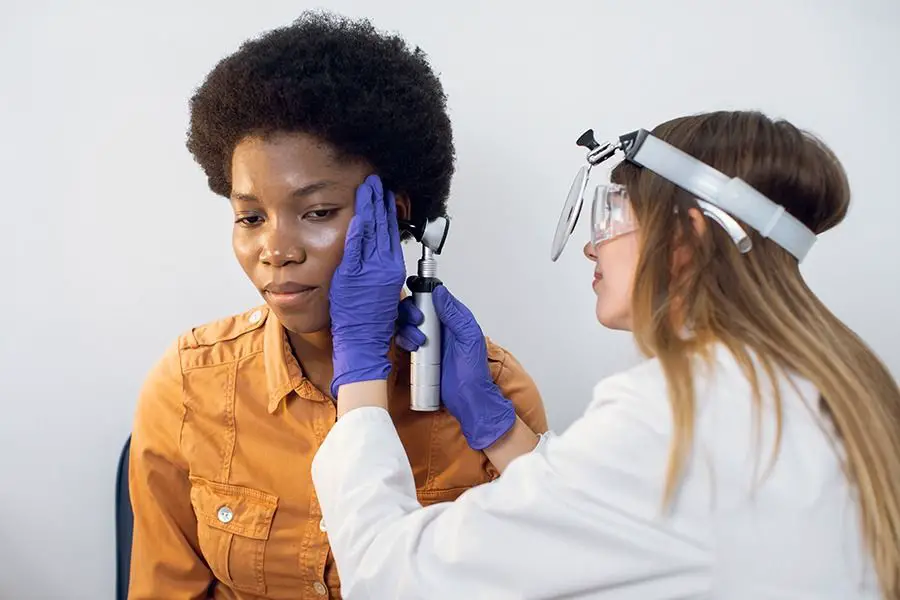Otosclerosis, commonly associated with hearing loss, is a condition that affects the bones in the middle ear, hindering their movement and sound transmission. However, its impact extends beyond hearing loss, intertwining with various other conditions and symptoms. This blog post aims to illuminate these connections, enhancing understanding for caregivers and those affected by Otosclerosis.
Investigating the Relationship Between Otosclerosis and Meniere’s Disease
Meniere’s disease and Otosclerosis, though distinct, share similarities that merit exploration. Meniere’s disease is characterized by vertigo, tinnitus, and hearing loss, while Otosclerosis primarily causes progressive hearing loss. Some studies suggest a potential connection between the two, hypothesizing that an abnormal immune response triggered by Otosclerosis might contribute to Meniere’s disease. This area of research is still evolving, and more studies are needed to confirm this link.
Otosclerosis and Tinnitus: Delving into the Research
Tinnitus, or the perception of noise or ringing in the ears, is a common symptom in Otosclerosis, affecting 75-85% of patients. The exact cause of tinnitus in Otosclerosis is not fully understood, but it is believed that changes in the bone structure of the middle ear stimulate nerve cells, leading to perceived sound. Tinnitus in Otosclerosis is typically low-pitched and more noticeable in quiet environments. Management strategies like cognitive-behavioral therapy, sound therapy, and hearing aids can effectively manage this symptom.
Understanding the Correlation Between Otosclerosis and Dizziness
Dizziness is not a common symptom of Otosclerosis but can occur in some cases. This symptom is usually caused by an involvement of the inner ear, where both hearing and balance are regulated. The stapes bone, most often affected in Otosclerosis, is directly connected to the fluid-filled inner ear. If Otosclerosis impacts the stapes’ function, it could potentially interfere with the inner ear’s balance function, leading to episodes of dizziness or imbalance.
Can Otosclerosis Lead to Complete Hearing Loss?
Otosclerosis primarily affects the stapes bone in the middle ear, causing progressive conductive hearing loss. Over time, if untreated, it can lead to a mixed hearing loss, involving both the middle ear and the inner ear. In severe cases, Otosclerosis can indeed lead to complete hearing loss. However, with early detection and appropriate treatment, such as hearing aids or surgery, this progression can be slowed or halted, and hearing can often be preserved.
Otosclerosis and Migraines: Exploring a Potential Link
While Otosclerosis does not directly cause migraines, some individuals with Otosclerosis report an increased incidence of migraines. Theories suggest that the stress and anxiety associated with hearing loss and other symptoms of Otosclerosis might trigger migraines in susceptible individuals. Additionally, some studies indicate that both Otosclerosis and migraines might share common genetic factors. Caregivers should monitor for symptoms of migraines and seek medical advice if they become a concern.
Latest Developments in Otosclerosis Research
Recent advancements in Otosclerosis research have focused on understanding its genetic components, leading to better diagnostic and treatment methods. Innovative surgical techniques and therapies are being developed to improve outcomes for those affected by Otosclerosis.
Innovative Treatments and Therapies for Otosclerosis
The medical community is exploring new treatments for Otosclerosis, including medications that could halt or reverse its progression. Advances in hearing aid technology and cochlear implants have also significantly improved the quality of life for those affected.
Mental Health and Otosclerosis: Understanding the Connection
Living with Otosclerosis can have a profound impact on mental health. Studies have highlighted the increased risks of anxiety, depression, and social isolation associated with hearing loss. Addressing these mental health aspects is crucial for providing comprehensive care to individuals with Otosclerosis.
FAQs About Otosclerosis
- What is Otosclerosis? Otosclerosis is a condition that affects the bones in the inner ear, leading to hearing loss.
- Can Otosclerosis cause dizziness? While not common, Otosclerosis can lead to dizziness due to its impact on the inner ear’s balance mechanisms.
- What is the connection between Otosclerosis and tinnitus? Tinnitus is a common symptom in Otosclerosis, likely caused by changes in the bone structure of the middle ear.
- Can Otosclerosis lead to complete hearing loss? In severe cases, Otosclerosis can lead to complete hearing loss, but early detection and treatment can slow or halt this progression.
- Is there a link between Otosclerosis and migraines? Some individuals with Otosclerosis report an increased incidence of migraines, though more research is needed to establish a direct link.
- Are there new treatments for Otosclerosis? Yes, recent research is exploring innovative treatments and therapies for Otosclerosis.
Practical Tips for Managing Otosclerosis
- Regular Hearing Assessments: Regular visits to an audiologist are essential for monitoring hearing loss.
- Embrace Assistive Technologies: Utilizing hearing aids and other devices can greatly improve hearing capabilities.
- Stay Informed and Proactive: Keeping abreast of the latest research and treatment options is crucial.
- Connect with Support Networks: Joining groups for those with Otosclerosis can offer support and shared experiences.
- Practice Stress Management: Engaging in stress-reducing activities can help manage the emotional aspects of living with hearing loss.
Conclusion
Understanding Otosclerosis goes beyond the scope of hearing loss. Comprehending the potential connections between Otosclerosis and other conditions like Meniere’s disease, tinnitus, dizziness, complete hearing loss, and migraines can provide a more comprehensive view of the condition. This understanding allows for a more holistic approach to care, focusing not only on the ear but also on the overall well-being of the person.
National Institute on Deafness and Other Communication Disorders (NIDCD): Provides comprehensive information on Otosclerosis, including symptoms, causes, and treatments. NIDCD on Otosclerosis.
American Academy of Otolaryngology-Head and Neck Surgery: Offers detailed insights into the diagnosis, treatment, and recent advancements in Otosclerosis. AAO-HNS on Otosclerosis.

HEARING QUEST
TINNITUS GURU
HEARING LOSS NEWS
- NCBI Bookshelf – Otosclerosis: This resource provides detailed information about Otosclerosis, including its abnormal bone remodeling in the middle ear. Read more on NCBI.






